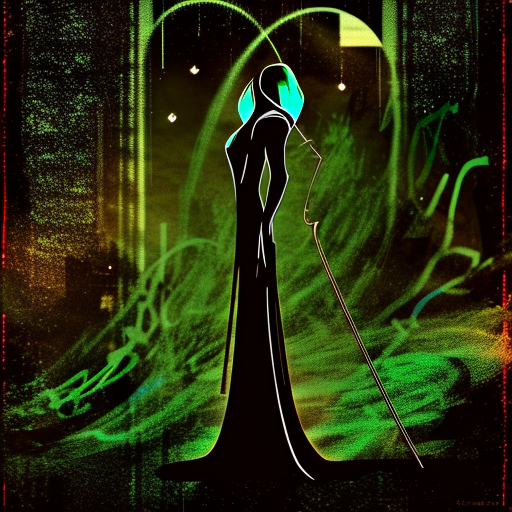One-line summary:
In the dystopian world of “Scythe,” two teenagers are chosen to apprentice as Scythes, responsible for controlling the population by “gleaning” individuals, leading them on a dangerous path of moral dilemmas and political intrigue.
The World of Scythes
In Neal Shusterman’s “Scythe,” the world has achieved immortality through advanced technology, where death is no longer a natural occurrence. To control the population, a group of individuals known as Scythes is tasked with “gleaning” people in order to maintain a balance. The story follows two teenagers, Citra and Rowan, who are unexpectedly chosen to become apprentices to Scythe Faraday, a respected and honorable Scythe.
As Citra and Rowan begin their training, they are introduced to the complex and morally ambiguous world of Scythes. They learn about the different methods of gleaning, ranging from quick and painless deaths to more brutal and violent ones. The apprentices also discover the political dynamics within the Scythedom, with different factions vying for power and influence.
A Dangerous Path
As Citra and Rowan progress in their apprenticeship, they face numerous challenges and moral dilemmas. They witness the corruption and abuse of power within the Scythedom, as some Scythes enjoy their authority a little too much, using their position to satisfy personal vendettas or sadistic desires. Citra and Rowan, however, strive to uphold the original principles of the Scythedom, believing that gleaning should be a duty carried out with compassion and respect for life.
Their dedication to their ideals puts them at odds with other Scythes, particularly Scythe Goddard, a charismatic and ruthless figure who represents the darker side of the Scythedom. Goddard believes in a more brutal and arbitrary approach to gleaning, and he sees Citra and Rowan as threats to his power. The two apprentices find themselves caught in a dangerous game of survival as they navigate the treacherous world of Scythes.
Moral Dilemmas and Political Intrigue
Throughout the book, “Scythe” explores complex moral questions about life, death, and the value of mortality. It challenges the reader to consider the consequences of a world without death and the ethical implications of granting a select group of individuals the power to decide who lives and who dies. The story also delves into themes of corruption, power, and the struggle to maintain one’s principles in the face of adversity.
As Citra and Rowan navigate the world of Scythes, they must confront their own beliefs and make difficult choices. They are forced to question the very nature of their existence and the purpose of the Scythedom. Their journey becomes a battle not only against external threats but also against their own inner demons.
Key Takeaways:
- The book explores the moral implications of a world without death and the power dynamics that arise when a select group of individuals control life and death.
- It challenges the reader to consider the value of mortality and the consequences of immortality.
- The story highlights the importance of maintaining one’s principles and standing up against corruption and abuse of power.
“The measure of a person’s character is what they would do if they knew they would never be found out.”
– Neal Shusterman, Scythe
In “Scythe,” Neal Shusterman presents a thought-provoking and thrilling dystopian tale that explores the moral complexities of a world without death. Through the eyes of Citra and Rowan, readers are taken on a journey filled with danger, political intrigue, and moral dilemmas. The book challenges us to reflect on the value of mortality and the consequences of granting a select group of individuals the power over life and death. Ultimately, “Scythe” reminds us of the importance of standing up for our beliefs and fighting against corruption and abuse of power, even in the face of seemingly insurmountable odds.












